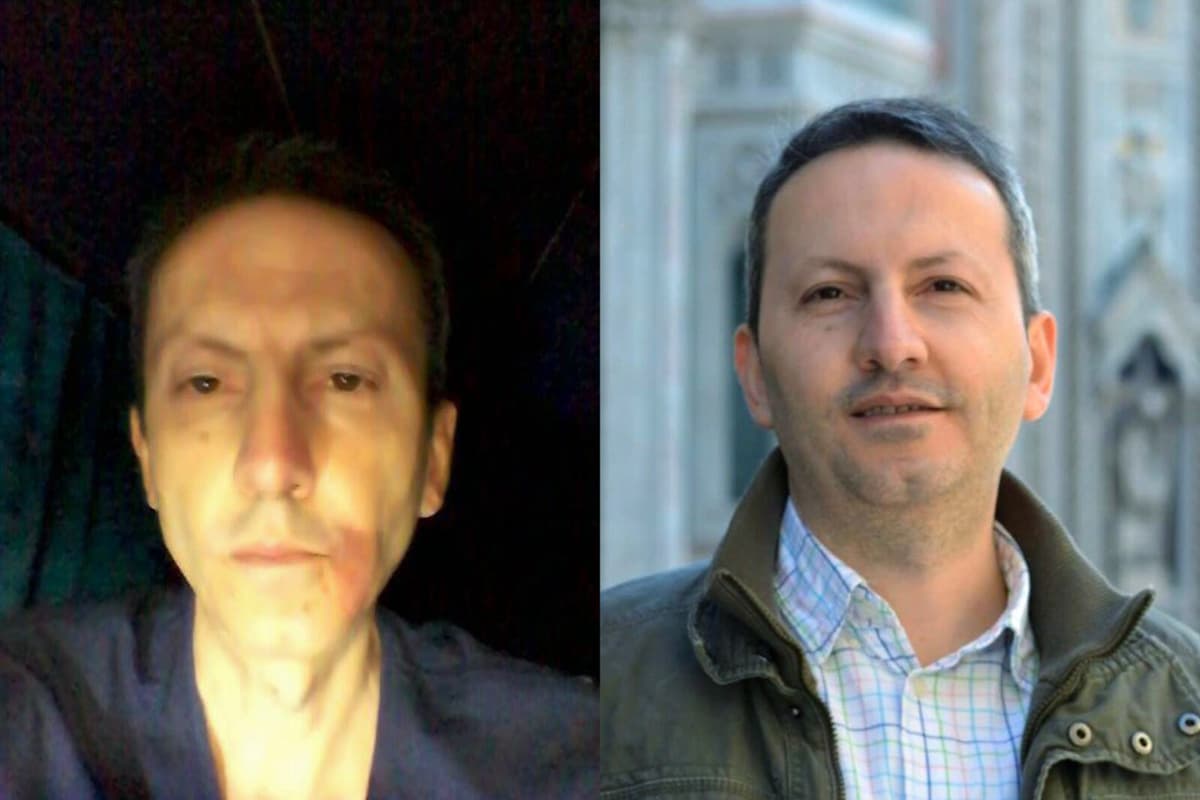The latest sign of life came on June 23, after Israel attacked the notorious Evin prison in Tehran where Djalali had been held captive for over nine years. In a phone call with his family, the Swedish-Iranian father of two stated that he was unharmed, but that he, along with a large number of other prisoners, would be moved to other prisons, due to the attack.
After the move, it is reported that he was taken to a new, unknown location, without his fellow prisoners.
The uncertainty about not knowing where Djalali is, or if he is even alive, means that his wife and children are living under extreme psychological pressure, says Lars Adaktusson, who is in close contact with the family.
Promised signs of life three times
The Swedish government has demanded signs that Djalali, who was imprisoned in 2016 during a trip to lecture on disaster medicine in Iran, is still alive.
On three occasions, his representative in Tehran has been promised that he would be allowed to contact the outside world, by contacting his family in Sweden, according to information to TT. Despite this, he has not been heard from.
Thousands of prisoners have since been returned to Evin prison, but Ahmadreza Djalali is not among them.
Most prisoners who were transferred have given us some kind of sign of life. I cannot think of anyone else who we have not heard from, says Mahmood Amiry-Moghaddam, founder of the Norway-based organization Iran Human Rights (IHR), which keeps statistics on executions in Iran.
Reports: Disagreement about execution
Iran has on several occasions threatened that Djalali will be executed very soon. During his time in captivity, his health has deteriorated significantly, and in May, he suffered a heart attack for which he did not receive adequate care.
There are unconfirmed reports that a dispute has arisen between parts of Iran's intelligence service and parts of the powerful, paramilitary Revolutionary Guard. According to testimony, the dispute led to guards from different parts of Iran's security apparatus drawing weapons against each other shortly after the prison attack in June, as the Revolutionary Guards wanted Djalali to be executed immediately.
Since Djalali was sentenced to death for espionage for Israel, after a summary trial that was condemned by the outside world, the risk of him being executed is considered to have increased due to the 12-day war between Iran and Israel in June.
The Ministry of Foreign Affairs writes in a comment that the work to free Ahmadreza Djalali "continues with full force".
"We do not go into details about the government's work on Ahmadreza Djalali's case, as this risks worsening his situation," continues the statement from the department's press service.
Sophie Tanha/TT
Facts: Sentenced to death in Iran
TT
Ahmadreza Djalali is a doctor and researcher in disaster medicine. He received his doctorate from the Karolinska Institute in 2012.
In 2016, he was arrested in Iran, where he had traveled to participate in a seminar on disaster medicine. He has since been sentenced to death for espionage charges that he has always denied. He is reported to have been forced to confess under torture.
Djalali became a Swedish citizen in 2018.
But when Sweden carried out a prisoner exchange with Iran in 2024, to bring home Swedish citizens in exchange for the Iranian Hamid Noury, who was sentenced to life in prison in Sweden, Djalali was left behind. According to the Swedish government, Iran did not even want to discuss his case in the negotiations.
During the more than nine years he has been in the notorious Evin prison in Tehran, his health has deteriorated significantly. In May 2025, he suffered a heart attack.






